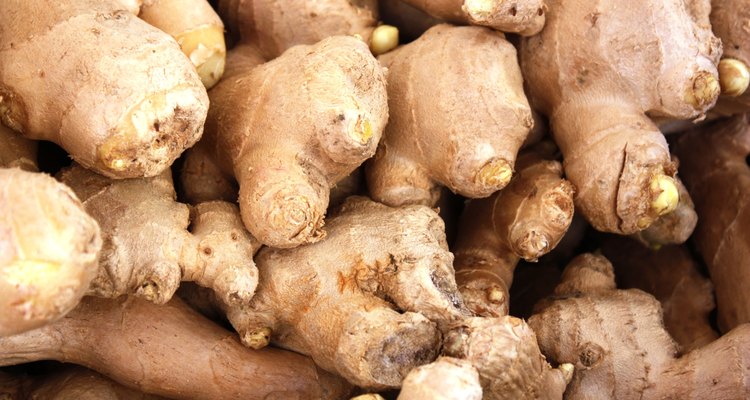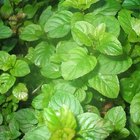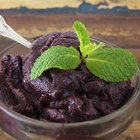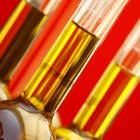
ClaraNila/iStock/Getty Images
Ginger is a popular herbal supplement that you can find in many cosmetic preparations and lotions. It's been used traditionally as a burn remedy, to reduce inflammation, and to treat pain on or near the skin. However, there isn't scientific evidence to support these uses, or to support the notion that it's good for your skin.
Ginger
Ginger is a common component of many foods, and powdered ginger appears in baked goods. Ginger candies, teas, and beverages are also common grocery store items. The flavor of ginger comes from many different molecules, but the molecule most directly implicated in ginger's medicinal properties in zingerone, explain Drs. Penny Le Couteur and Jay Bureson in their book "Napoleon's Buttons." Zingerone is related to capsaicin, which is found in hot peppers, and it has a similar heat.
Ginger and Skin
According to PubMed Health, there's no scientific evidence to support the use of ginger -- generally it's ginger juice that people apply topically -- to treat skin conditions or improve skin health. There isn't scientific evidence that suggests it's dangerous or unsafe, either, so if you're interested in using ginger topically, you should discuss it with your doctor. Some very sensitive individuals could potentially notice a burning sensation after applying ginger topically, particularly to sensitive areas like the face.
Possibilities
Althought there's no clearly defined, plausible scientific hypothesis for why ginger might benefit your skin, it's reasonable to suppose that it could help distract you from certain skin conditions, but this hasn't been proven scientifically. Because zingerone binds to pain receptors -- similarly to the way capsaicin does -- some individuals could notice a distracting, warm sensation after applying ginger juice topically. The sensation could be similar to but more subtle than that associated with topical application of capsaicin, and might distract you from pain.
Guidelines
If you're interested in using ginger juice for any health-related purpose, you should talk to your doctor. Your physician can help you determine whether ginger is an appropriate remedy or skin conditioner. There are other herbal and plant-based skin conditioners that have more scientific evidence to support their use. Many oils,such as olive oil or coconut oil, help moisturize your skin and reduce inflammation. Aloe vera helps with burns, and moistens very dry or damaged skin.
Related Articles

Galangal Powder Substitute

Difference Between Peppermint Extract & ...

Herbs That Cause Photosensitivity

About Fresh Ginger Substitutes
Can You Eat Ginger Peel?

A Good Substitute for Hoisin Sauce

Is Peppermint Oil Good for Skin Care?

The Uses of Alcolado Glacial

Clove Oil & Pimples

Grapefruit Skin Benefits

Health Benefits of Hot Peppers

Acai Berry & Acne

Turmeric, Lemon & Honey

Is Rooibos Tea Good for Acne?

The Use of Neem Juice in Skin Care as ...

Cooking Substitute for Tamarind ...

Jojoba Oil Benefits

Peppermint Oil for a Cough

DIY Soothing Chamomile Face Mask

Honey & Nutmeg to Heal Acne Scars
References
- University of Maryland Medical Center: Ginger
- “Napoleon’s Buttons”; Penny Le Couteur and Jay Bureson; 2004
Writer Bio
Kirstin Hendrickson is a writer, teacher, coach, athlete and author of the textbook "Chemistry In The World." She's been teaching and writing about health, wellness and nutrition for more than 10 years. She has a Bachelor of Science in zoology, a Bachelor of Science in psychology, a Master of Science in chemistry and a doctoral degree in bioorganic chemistry.
Photo Credits
ClaraNila/iStock/Getty Images